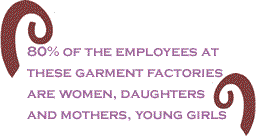�Gertrude
N. Cunningham was that teacher everyone says they
remember, one teacher who made a big difference in their
life,� begins the Managing Editor at the Black
Commentator, Nancy Littlefield, but she was more:
 Mrs.
Cunningham �guided me from early childhood to student-hood,
from looking inward, to seeing myself as part of the larger
world, from lost little child to capable young woman�
(June 23, 2011).
Mrs.
Cunningham �guided me from early childhood to student-hood,
from looking inward, to seeing myself as part of the larger
world, from lost little child to capable young woman�
(June 23, 2011).
Among
the projects and activities Mrs. Cunningham organized
for her 4th grade class 50 years ago, there was one that
caught my attention: �She wrote our class play to be a
trip around the world,� writes Littlefield. The children
in this class danced and sang �about one country after
another.�
�I
think of her often, knowing what a huge positive influence
she has been in my life.�
Would
it be possible today for a Mrs. Cunningham to announce
to her class of students a trip to Bangladesh,
today�s Bangladesh,
enmeshed as that country is in globalization? Today,
we will travel to� and she would walk to the map of
the world and let the pointer rest on the nation surrounded
by India (all sides) except Myanmar to the southeast and the Bay of Bengali to
the South.
Bangadesh, students!
The
People�s Republic of Bangledesh, according to Wikipedia,
is a sovereign state. It won its liberation from
Pakistan in 1971 and since 1991, it has experienced
�relative calm and economic progress.� The U.S. State
Department raves about its �excellent� relationship (�friendship�)
with Bangladesh.
The
Internet provides us with tour guides. See the old and
the modern, thriving Bangladesh!
�Know Bangladesh� (National Portal of Bangladesh)
through its �archaeological sites, historical mosques
and monuments, longest natural bench in the world, picturesque
landscape, hill forests and wildlife, rolling tea gardens
and tribes.�
At
Bangladesh.com, the promo reads: �Dharka is a great
place to start your visit to this amazing country.� Dharka, Bangladesh�s
largest city, the city of Mosques,
the city of skyscrapers, of hills, of houses�
 Streets
are filled with people in traditional and western garb.
There are so many women briskly walking among the taxi
and bus horns blaring. Foreign tourists talk and chatter
among the spectacle structures. Rolls and rolls of film
to develop to show the folks back home and to remember�Video
cameras capture images of family members and friends posing
before the Lalbash Fort or the National Museum which houses,
we are told, �a large number of interesting collections�
including �sculptures and paintings of the Hindu, Buddhist,
and Muslim periods,� along with �inscriptions of the Holy
Quran in Arabic and Persian works in Arabic� (Betelco.com).
Streets
are filled with people in traditional and western garb.
There are so many women briskly walking among the taxi
and bus horns blaring. Foreign tourists talk and chatter
among the spectacle structures. Rolls and rolls of film
to develop to show the folks back home and to remember�Video
cameras capture images of family members and friends posing
before the Lalbash Fort or the National Museum which houses,
we are told, �a large number of interesting collections�
including �sculptures and paintings of the Hindu, Buddhist,
and Muslim periods,� along with �inscriptions of the Holy
Quran in Arabic and Persian works in Arabic� (Betelco.com).
Shops
and street vendors display souvenirs. And the tea gardens
are really �lush� with tea leaves plucked mostly by women
(Bangladesh.com). In fact, of the 300,000 employees
of the tea estates, 75% are women since women �do a better
job and are paid less than men.�
There
are the billboards, too! I am sure we would see multinational
corporations like Monsanto, Monsanto Bangladesh Limited,
located in Dharka on the 13th floor, 70/I Inner Circular
Road, Kakrail. Monsanto - �meeting the needs of today
while preserving the planet for tomorrow.�
Some
objected. Environmentalist Vandana Shiva wrote a letter
to the Microcredit Nobel Prize winner Mohammad
Yunus, President, Grameen Bank, Bangladesh,
in which she stated the following:
Monsanto's
skills in agriculture are in the field of genetically
engineered crops. These crops are designed to use more
agrichemicals like Round-up which is a broad spectrum
herbicide that kills anything green. Your microcredit
venture with Monsanto will directly finance the destruction
of the green vegetables that women collect from the fields.
Round-up also has negative impacts on fish which provide
80% of the animal protein in Bangladesh.

While
we stop for tea or eat a meal while the poor look on�
�because
there is another Dharka of dark streets even in the daylight.
If we really want to �know� Bangladesh
and understand the friendship between the West and Bangladesh, we should see this other Dharka.
This Dharka is home to 75% percent of the nation�s 3,000
garments industries. This industry is the largest employer,
after agriculture (International Trade Union Conference),
with some 3.5 million workers. It is a 5 billion dollar
business and growing.
We
do not want to miss it because the garment industry is
becoming a huge source of income for Bangladesh According
to TourBangaldesh.com, the garment industry �has
given the opportunity of employment to millions of unemployed
specially innumerable uneducated women in the country.
It is making significant contribution in the field of
our export income.�
True,
80% of the employees at these garment factories are women,
daughters and mothers, young girls. These women workers
produce �Ready Made Garments� the kind of clothes smart
buyers in the U.S. purchase at the Gap (Banana Republic
and Old Navy), Walmart, J.C. Penny�s, Kohl�s, and Macy�s.
These are the kind of garments that make U.S.
women and girls look good, girl and feel
empowered!
 In
Dharka, local and rural girls and women flip through job
ads like the following:
In
Dharka, local and rural girls and women flip through job
ads like the following:
Advance
Attire LTD, Shah Ali Bagh (4th and 5th fl.), Section #1,
Mirpur, [nearby town], Dharka-1216 B. Tel: (off) 029005662.02:9007538.
Fax: (off) 02-801739. (Shirts, Jackets, Pants).
See
�Key personnel: Salam Hossam Chowdhury, C.E.O.� Oh, there
is money to be made in the garment industry for �key personnel�
and other neighboring citizens of a certain means and
ambition.
There
is so much money to be made that when women at the factory,
owned by the Ha-Meem Group just north of Dharka in Ashulla,
were also critical of working conditions and wages and
decided to stage a �peaceful� protest, several of them
were killed. A few days later, on December 17, 2010, a
fire at that factory in Ashulla killed 29 workers and
injured over 100 - �trapped behind exits locked by their
employees� (The Jewish Daily Forward, March 6,
2011). Fifty women jumped from the 10th floor of the factory
where 5,000 made �pants for customers [mostly women] in
the West� who purchase clothes from the Gap, Walmart,
and J.C. Penny�s.
Surprised,
a spokesperson for the Gap said that for �more than 15
years, Gap Inc has worked to bring fair and safe working
conditions to factories around the world.�
�We
conduct periodic, unannounced audits of factories to ensure
safety, and we were on-site in April and August at this
factory. Among the many requirements of our Code of Vendor
Conduct is that there are regular fire drills and other
safety measures in place.� (The Guardian U.K., December 14, 2011)

But
somewhere along the line between the Gap and the Ha-Meem
Group communications, I guess, broke down in favor of
the bottom line not to mention those women back
in the U.S. and the U.K. who want to look good, girl for less.
Back
in Dharka, the women and girls we see sitting behind the
sewing machines wear mostly traditional garments, but
they work 12-14 hours per day, six days a week, to produce
the latest fashion - Western fashion - made
from durable Bangladesh
textiles. For their contribution to Bangladesh�s
income and for the benefit of looking-good-girl women
in America, these women workers
are paid between 13-17 cents per hour. These women garment
workers are �the world�s most poorly paid workers� (International
Trade Union Conference). (�There by the grace of God��
I�m an American, Christian women in the U.S. respond. �That�s business!� everyone else
says).
And
as a result of the working conditions, they are not so
healthy either. According to Gaurav Doshi, June 2006 article,
�Overview of Bangadesh Garment Industry,�
A
research reveals that 90 percent of the garment employees
went through illness or disease during the month before
the interviews. Headache, anemia, fever, chest, stomach,
eye and ear pain, cough and cold, diarrhea, dysentery,
urinary tract infection and reproductive health problems
were more common diseases. (Article Source: http://EzineArticles.com/367773)
 Most
of these women workers only manage to work four years
in a garment factory Doshi adds (and as we see in pictures
we have to search far and wide for): �the state of employment
in many (not necessarily) textiles and clothing units
in the developing nations take us back to those set up
in the nineteenth century in Europe and North America.�
Most
of these women workers only manage to work four years
in a garment factory Doshi adds (and as we see in pictures
we have to search far and wide for): �the state of employment
in many (not necessarily) textiles and clothing units
in the developing nations take us back to those set up
in the nineteenth century in Europe and North America.�
Night
falls in Dharka. The day is done for the tourists, the
business owners, and the middle class managerial workers.
But there is little rest for the women garment workers.
As Gary Null, WBAI Radio, June 24, 2011) explained, they
are silhouette figures, now, walking along the streets
and roads, making the long distance trip home, only to
resume this walk in reverse in the wee hours of the morning.
Here
in Dharka, in the Ready Made Garment district, we are
worlds away from the life of the owners of the skyscrapers,
the American and British corporate and NGO managers, some
educated at the finest universities in the West, and tourists
who visit the world�s largest natural beach and Dharka�s
monuments.
The
city of Mosques is also a city of
sweatshops, of suffering, of death, and like so many cities
and rural areas globally and here at home, experiencing
that �excellent� friendship with the U.S. government and its corporate
partners.
No,
a Mrs. or Mr. or Dr. Cunningham is even rarer today! Teachers
cannot attempt this project today in a U.S.
classroom - and worse, most will not try. The Thought
Police will not have it because the task of schools and
universities in the modern U.S.A. is to produce corporate
managers and American girls and women who must not be
made to think or question the imperialist authorities.
[NOTE:
Thanks to WBAI Radio Host Gary Null for discussing the
plight of Bangladeshi women, June 24, 2011. Thanks to
Mrs. Cunningham and Nancy Littlefield.]
BlackCommentator.com Editorial Board member, Lenore Jean Daniels,
PhD, has a Doctorate in Modern American Literature/Cultural
Theory. Click here
to contact Dr. Daniels.

